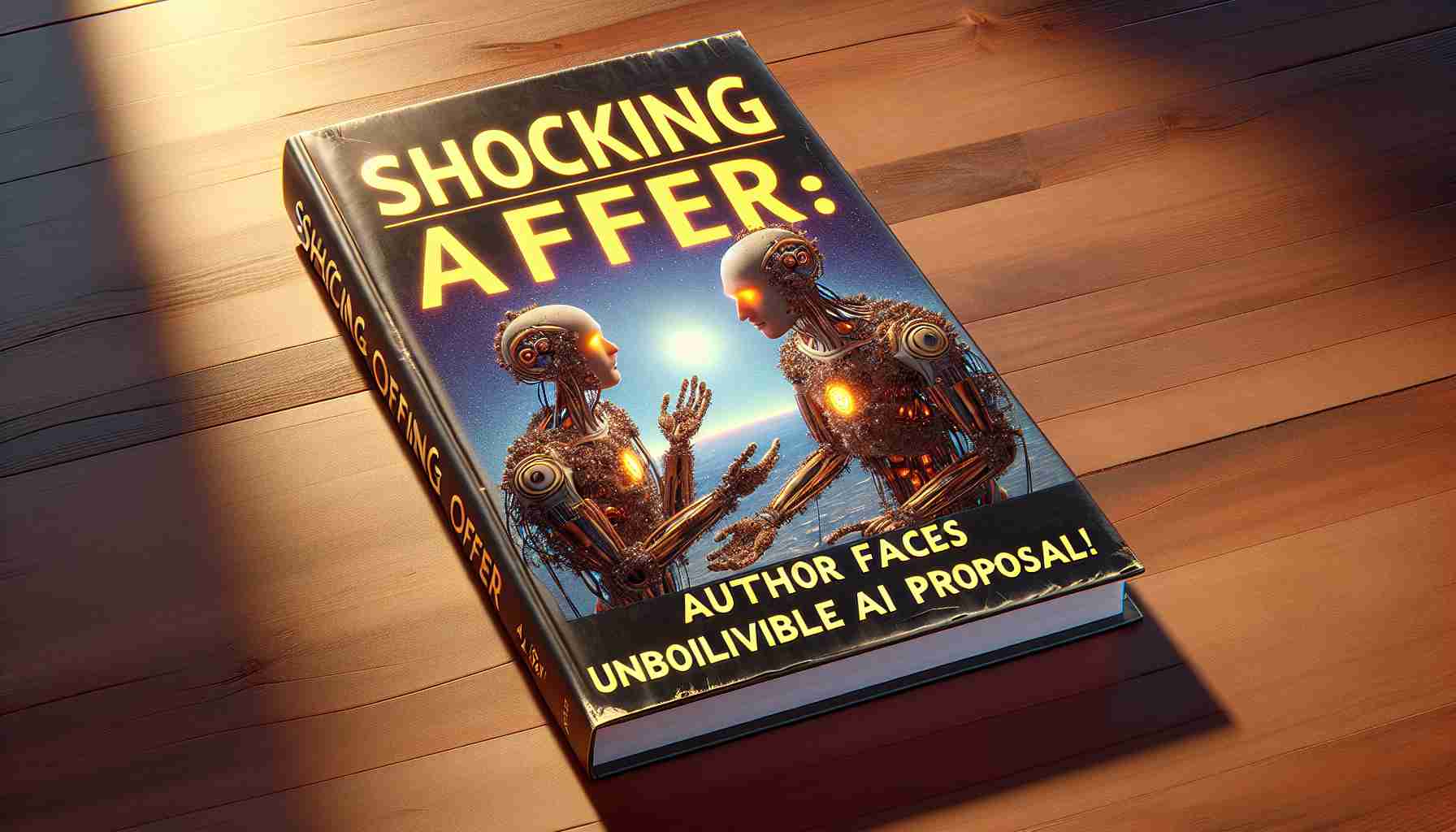In a startling revelation, author Daniel Kibblesmith took to social media to expose a shocking email he received from his publisher, HarperCollins. The email contained a proposal offering a measly $2,500 for the rights to utilize his beloved children’s book, Santa’s Husband, in an AI training program with a secretive large tech company.
Upon receiving the proposal, Kibblesmith quickly declined, pointing out the absurdity of the situation. He expressed his deep concerns about publishers feeding AI models that could threaten the very existence of writers. The offer, which essentially divides a minuscule fee between Kibblesmith and his illustrator, was deemed an affront to their creative work and intellectual property.
This troubling incident highlights a concerning trend within the publishing industry, where authors might feel pressured to relinquish their creations for subpar compensation. The current landscape suggests that many writers could be navigating an era defined by undervaluation and exploitation.
Kibblesmith implores fellow authors to take action, encouraging them to communicate firmly with their agents to prevent their works from being licensed for AI training. This pivotal moment calls for unity among writers, readers, and art lovers alike. Support for human creativity over AI-driven content is essential if we wish to protect the integrity of the arts. By advocating for original work and resisting corporate pressures, the literary community can strive to ensure that storytelling remains a deeply human endeavor.
The Dangers of AI in Publishing: Authors Unite Against Exploitation
The Context of the Controversy
In a recent incident that has sparked fierce discussions within the literary community, author Daniel Kibblesmith publicly denounced a proposal from HarperCollins regarding the use of his children’s book, Santa’s Husband, in an artificial intelligence (AI) training program. The offer of $2,500 for such critical rights raises significant concerns about how publishers and large tech companies are exploiting authors’ intellectual property for minimal compensation.
The Growing Trend of AI in Literature
As artificial intelligence becomes increasingly integrated into creative industries, the potential for exploitation grows. Many authors are encountering proposals that seem unduly low when compared to the scale and future profitability of using their works to train AI systems. This scenario is not unique to Kibblesmith; it highlights a troubling trend across the publishing landscape.
Pros and Cons of AI’s Integration in Publishing
Pros:
– Efficiency: AI can analyze vast amounts of text quickly, providing publishers with data that can enhance market strategies.
– Content Generation: AI tools can assist authors in generating ideas, streamlining the writing process, and handling mundane tasks.
Cons:
– Intellectual Property Issues: As seen in Kibblesmith’s case, the rights to an author’s work may be compromised for minimal compensation.
– Quality of Content: AI-generated works may lack the depth and emotional resonance that human authors provide.
– Job Security: With AI’s increasing capability, there is a risk that authorship could be undervalued or undermined.
Use Cases: How AI is Changing the Landscape
Publishers are exploring AI’s potential to predict best-sellers based on algorithms that analyze consumer trends and reading habits. However, this raises ethical questions about the future of storytelling and the role of human creativity versus algorithmic processes.
Limitations of AI in Creative Writing
Despite its advancements, AI struggles with:
– Understanding Nuance: AI lacks the human touch and the ability to comprehend cultural or emotional contexts, which are integral to storytelling.
– Creative Originality: The originality of AI creations is often questioned, as they rely on existing data rather than true innovation.
The Call for Action Among Authors
Kibblesmith urges fellow authors to foster a collective spirit to resist such exploitative offers. This includes:
– Communicating with Agents: Authors are encouraged to discuss the implications of AI licensing with their representatives.
– Advocating for Fair Compensation: Writers must insist on fair payment for their creative works to combat the undervaluation of literature.
Market Analysis: The Future of Publishing
As the AI trend continues, authors and publishers alike must navigate an evolving landscape. There is potential for collaboration that respects the rights of authors while leveraging AI’s capabilities, but this will require a significant shift in current practices.
Predictions: What Lies Ahead for Authors
The ongoing debate about AI’s role in literature may prompt legislative changes regarding intellectual property rights and creative work protections. There is a growing possibility of developing frameworks that ensure fair compensation for authors while embracing technological advancements.
Conclusion
The controversy surrounding Kibblesmith’s experience reflects a critical moment for authors as they face the intersection of creativity and technology. With collective action and advocacy for intellectual property rights, the literary community can work towards ensuring that the heart of storytelling remains protected against the encroaching influence of AI.
For more insights on the impact of technology on literature, visit Publishers Weekly.
